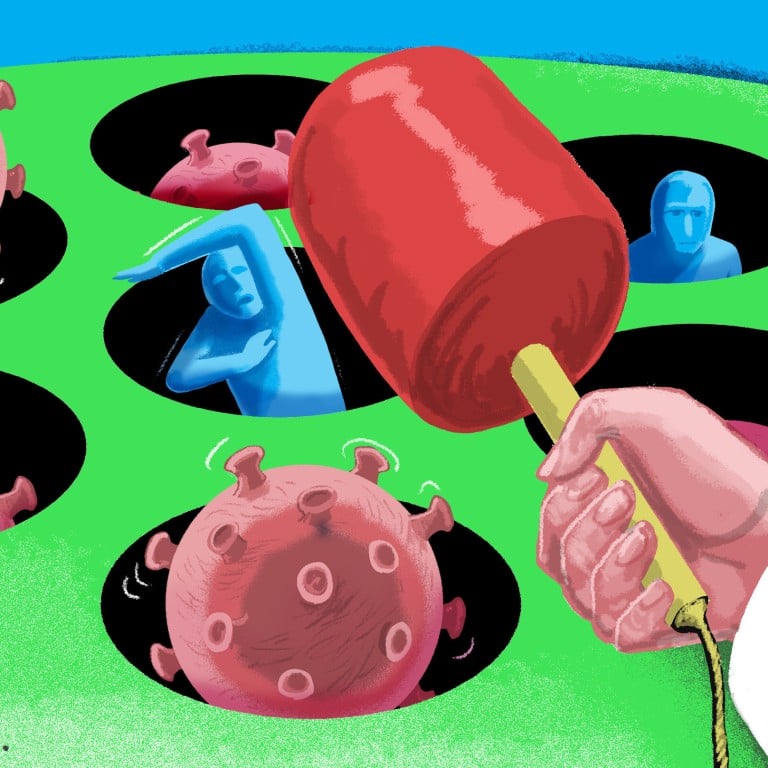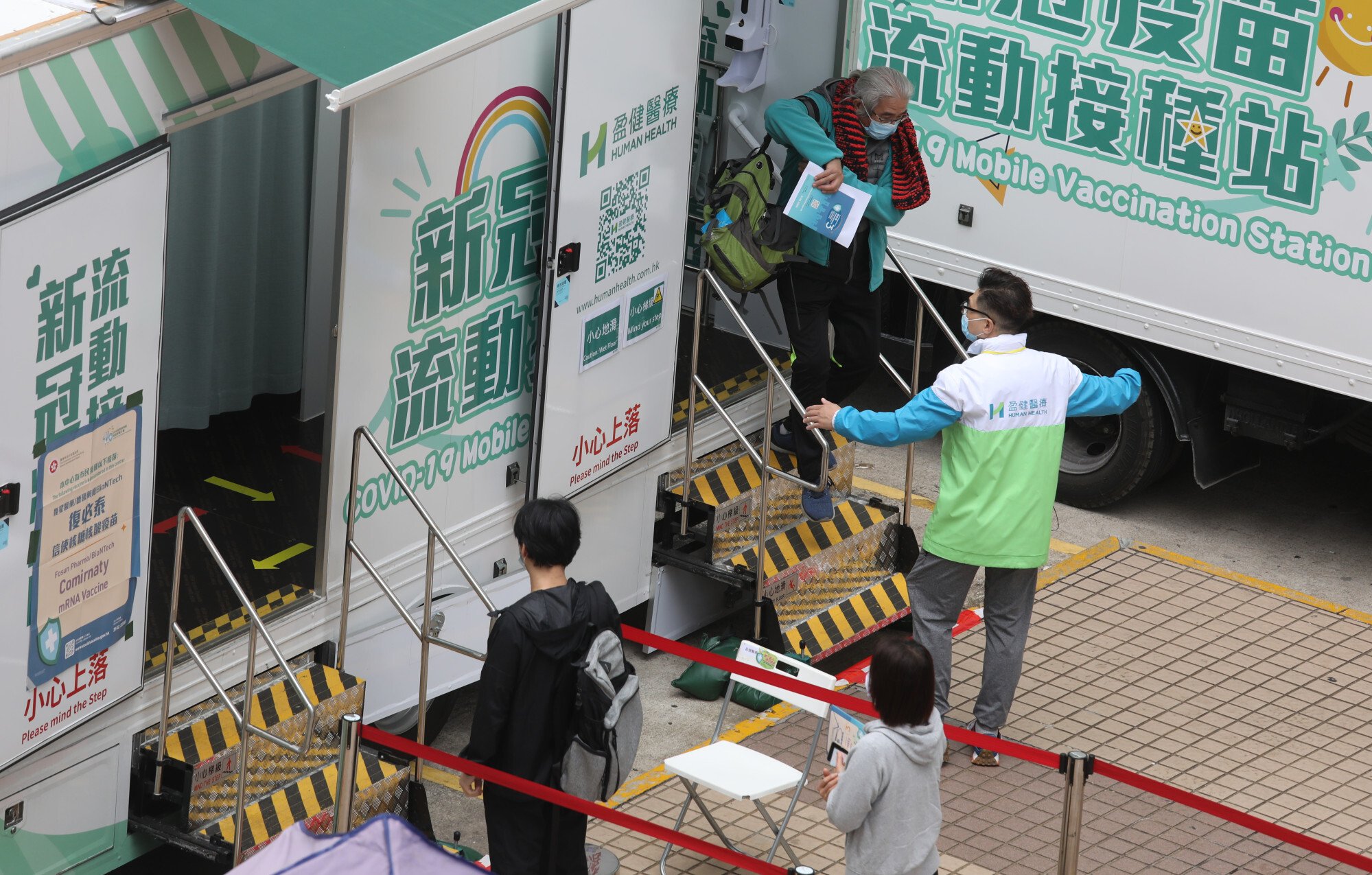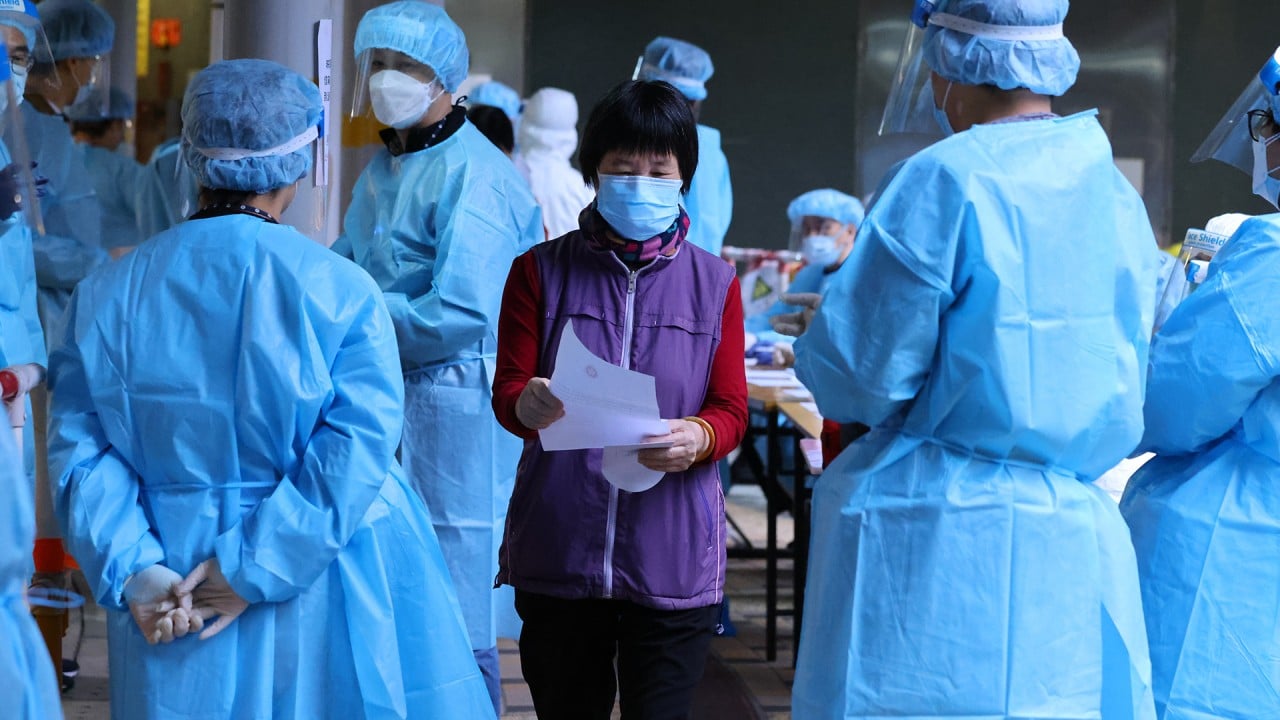
Hong Kong’s Covid-19 measures must be driven by scientific fact, not fear
- The middle road between a strict zero-Covid-19 policy and a dangerous ‘let it rip’ scenario is grounded in science and promotes quality of life
- It requires us to focus on sensible long-term measures such as wearing masks, getting vaccinated, gathering only outdoors, and improving indoor ventilation
More than two years into the Covid-19 pandemic, and with yet more measures being introduced by the Hong Kong government, it seems like we’re in a perpetual state of “déjà vu all over again” (as US baseballer Yogi Berra put it), and no closer to “normal”. It’s incredibly tiresome, yet as a Los Angeles Times article noted this month, while many might say they are “done with Covid”, Covid’s not done with us.
Perhaps, then, it is worth looking at how science suggests Covid-19 will pan out and ways we might respond. First, as I’ve written before, Covid-19 spreads efficiently well before symptoms even develop, so there is no real pressure for it to evolve towards being less dangerous, or simply “disappear”, as former US president Donald Trump predicted.
Second, Covid-19 is airborne, which means that, much as unprotected sex carries a risk of contracting HIV, unprotected breathing might result in Covid-19.
As in other places, Hong Kong’s policy includes some measures with a scientific basis, and others that look more questionable. The 21-day quarantine for new arrivals, for instance, was longer than scientifically necessary – and a recent outbreak was traced to a woman who caught Covid-19 late in her quarantine stay.
Plus, outdoor facilities like barbecue pits and campsites remain closed, though evidence reveals little Covid-19 transmission outdoors, while indoor banquets for up to 240 people have been permitted.
Perhaps a strict local zero-Covid approach would be wise if it appeared the virus could be exterminated worldwide. Yet it hardly seems viable ad infinitum: how long can you keep playing whack-a-mole to stop small outbreaks, while our once-global city is almost hermetically sealed from the outside world.
Another year? Five years, 10 years? And that’s supposing current measures can restore zero Covid, though they seem like King Canute trying to stop the incoming tide.
Ongoing deaths, long Covid, recurring infections and pandemic waves, and all the disruptions these entail – that’s what.
Of course, there are strong, persistent messages that Covid-19 is just like the regular flu; and even if it isn’t, we can soon arrive at “herd immunity” thanks to the “milder” Omicron variant. Here, I’m reminded of a cartoon showing a long queue of people visiting a booth with “Comforting Lies”, while no one wants to go to “Unpleasant Truths”.
Why Carrie Lam struggles to define what ‘dynamic zero Covid’ means
Throughout the pandemic, the disease experts with more alarmist messaging have proven to be more accurate in their predictions than those peddling “hopium”. Covid-19 has not disappeared and, now, the “milder” Omicron is causing surging cases and deaths in places with relaxed measures such as Denmark and Sweden.
On Tuesday, the Financial Times reported that, “A quarter of UK employers say long Covid is now one of the main causes of long-term sickness absence among their staff”.
Ben Cowling, chair professor of epidemiology at the University of Hong Kong’s School of Public Health, recently tweeted that most of the Hong Kong population could be immune to Covid-19 in around four months, thanks to vaccines and/or infections.
However, in response to a question I posed mentioning reports of people being reinfected with Omicron, he said of immunity: “Not sure how long it lasts, but should be months, although new variants might be able to escape it.”

With uncertainties regarding immunity, governments in the US and the UK have come up with a wheeze for minimising Covid-19: less reporting of cases and deaths.
Dr Eleanor Murray, an assistant professor of epidemiology at Boston University School of Public Health, has likened this approach to weather stations saying they will no longer track storm cells and issue tornado warnings.
In reality, Covid-19 will continue to cause major issues, especially at a population level. And the impacts extend well beyond those of other respiratory diseases: “long Covid” and “Covid brain fog” are increasingly common terms, while a paper published online by Nature Medicine on February 7 pointed to “evidence that the risk and one-year burden of cardiovascular disease in survivors of acute Covid-19 are substantial”.
Then, it appears Covid-19 mainly spreads via air, indicating where to focus countermeasures. Evidence and even common sense show face masks work; and, with Omicron, it’s advisable to switch to the more effective N95 or K94 masks.
It’s surely also best to optimise quality of life, with more science-based quarantine rules and an encouragement of outdoor dining; plus countering disinformation. Medical services also need support and more resources, including more readiness for dealing with further waves of existing and future variants.
I was lucky to grow up in a world that made huge efforts to tackle once-widespread diseases like smallpox, measles and polio. Now, if equipped with science-based strategies and empathy from leaders and society at large, we can surely find ways to combat Covid-19. As some experts have suggested, in future we might normalise clean indoor air just as we have clean drinking water.
Martin Williams is a Hong Kong-based writer specialising in conservation and the environment, with a PhD in physical chemistry from Cambridge University


